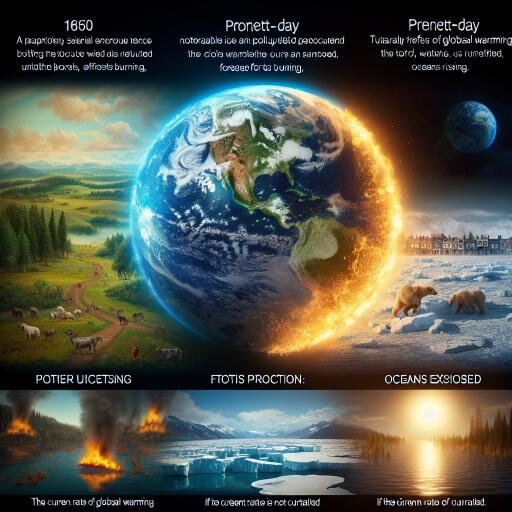
 Global Warming May Have Begun in 1860 and Could Be Far More Advanced Than Estimated
Global Warming May Have Begun in 1860 and Could Be Far More Advanced Than Estimated
In a groundbreaking pivot in climatic research, the examination of Caribbean sea sponges has unlocked new insights into the development of global temperatures since the beginning of industrialization. A pioneering study, showcased earlier this February in Nature Climate Change, suggests a potentially earlier arrival to the critical warming milestone of 2°C (3.6°F) than previously anticipated, setting the new estimate at the brink of the 2020s—a stark advancement of nearly twenty years from former projections.
At the heart of this research is the Ceratoporella nicholsoni, a sea sponge species renowned for its robust exoskeleton and ability to live for millennia. Scientists have tapped into the 300-year temperature record preserved in these sponges, courtesy of their unique method of assimilating strontium and calcium carbonate from seawater. This intricate process affects the ratio of strontium to calcium in the sponge’s skeleton in response to oceanic temperature changes, much like how dendrochronology utilizes tree rings to study past climates. The analysis posits that the inception of global warming traces back to the 1860s, predating previous estimates made by the Intergovernmental Panel on Climate Change (IPCC) by a significant forty years.
However, this revelation is not without its detractors. A portion of the scientific community has voiced concerns over the study’s methodologies and outcomes. Critics argue the assumption that the temperature records derived from the sponges are affected predominantly by solar heating at specific ocean depths, lacking consideration for the ocean’s dynamic thermal mixing, which features substantial temperature variability.
Notwithstanding the debate, the implications of this study are profound, emphasizing an escalated urgency in addressing global warming. Surpassing the 2°C (3.6°F) warming threshold portends catastrophic and irreversible impacts on our planet’s climate system. This underscores the paramount need for hastened and robust actions towards curbing greenhouse gas emissions, in line with the objectives set forth by the 2015 Paris Agreement.
The research not only presents challenges in establishing a precise pre-industrial baseline essential for quantifying the magnitude of post-industrial temperature elevation but also augments the climatic jigsaw with a novel perspective on historical oceanic temperature evolution. It stresses the value in diversifying the sources of climate data, enriching our understanding and approach towards mitigating the looming threat of global warming.





Leave a Reply